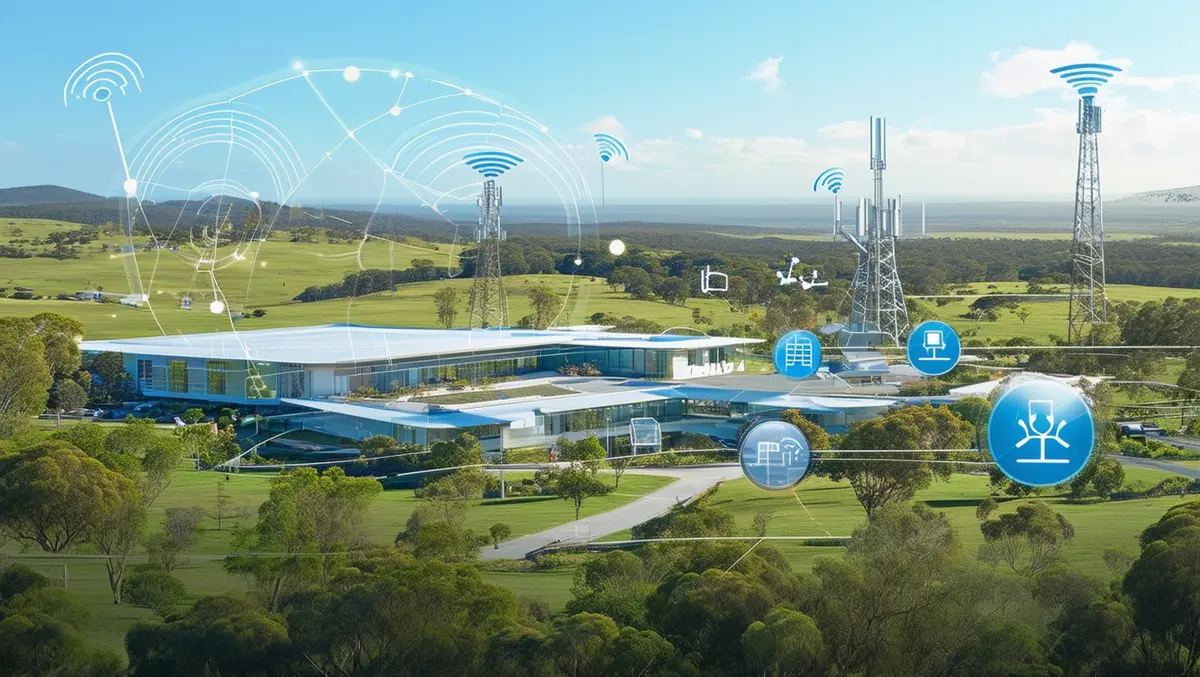
Optus technology enhances rural healthcare with 50% fewer complaints
Catholic Healthcare (CHC) revealed at a recent roundtable event that employee and resident complaints about poor coverage in rural Australia have decreased by 50% since transitioning to the Optus network. The roundtable, hosted by Optus in collaboration with Catholic Healthcare and Samsung, highlighted the transformative potential of technology in the health and aged care sectors.
The Optus 5G network has enabled CHC to explore advanced technologies, including Microsoft's HoloLens headset for hands-free telehealth and assessment services. Brett Reedman, Chief Information Officer at Catholic Healthcare, outlined significant advancements made possible through their partnership with Optus. "We've been doing a lot of work with wearables... there's radar technology that's coming through in terms of capturing biometrics and all this technology requires a communications layer. So 5G being the fastest we have at the moment is critical for all those technologies to enable people to stay at home longer," Mr Reedman said.
Ben Vella, Optus Vice President of Enterprise and Mid-Market, stressed the importance of continuous investment in network infrastructure to support business partners. "Whether it's improved network reliability in remote parts of Australia that healthcare workers can rely on, or a faster 5G network that opens the doors to new technology; our network provides the flexibility required for the health and aged care industries to flourish," Mr Vella said.
Professor Nilmini Wickramasinghe, Optus Chair of Digital Health and Professor at La Trobe University, spoke on the impact of AI and digital twin technologies in healthcare: "Digital twin allows healthcare professionals to apply machine learning to create a digital representation of a patient using genetic information, social data, and medical records, helping health care teams predict and prevent potential health risks."
Professor Wickramasinghe added, "We're at an inflexion point—it's a very exciting time. We naturally have challenges with healthcare delivery, but we have all these great technology solutions at our fingertips. It's about having imagination about how to use them and how to embrace and apply them."
Rob Taylor, Head of the B2B Division at Samsung Electronics, discussed the potential of new wearable technology and low earth orbit satellite capabilities. "Samsung plays an important role in supporting the frontline workers of the aged care and healthcare industries, and as we think beyond that, it's about patient care. We're applying a lot of our attention to how we can support health care and aged care around the access and usability of wearables for patients so that there can be better insights into their health and more timely responses when required," Mr Taylor said.
Key takeaways from the event included the imperative of enhanced connectivity and speed for effective healthcare delivery, especially in rural and remote areas. Mr Reedman noted the significant impact that improved connectivity has on the daily experiences of patients and residents. "The number one piece of feedback from our patients and residents is they want more connectivity; having a cup of tea and a conversation. By improving the efficiencies of mundane technological tasks, backed by Optus's high-speed and reliable network, our team can eventually be freed up to spend more on human connection time with residents and clients," he concluded.
The roundtable underscored the vital role technological advancements such as AI, wearables, and digital twins are playing in shaping the future of healthcare and aged care. The collaboration among Optus, Catholic Healthcare, and Samsung points towards a more connected and innovative future for health services provision in Australia.


